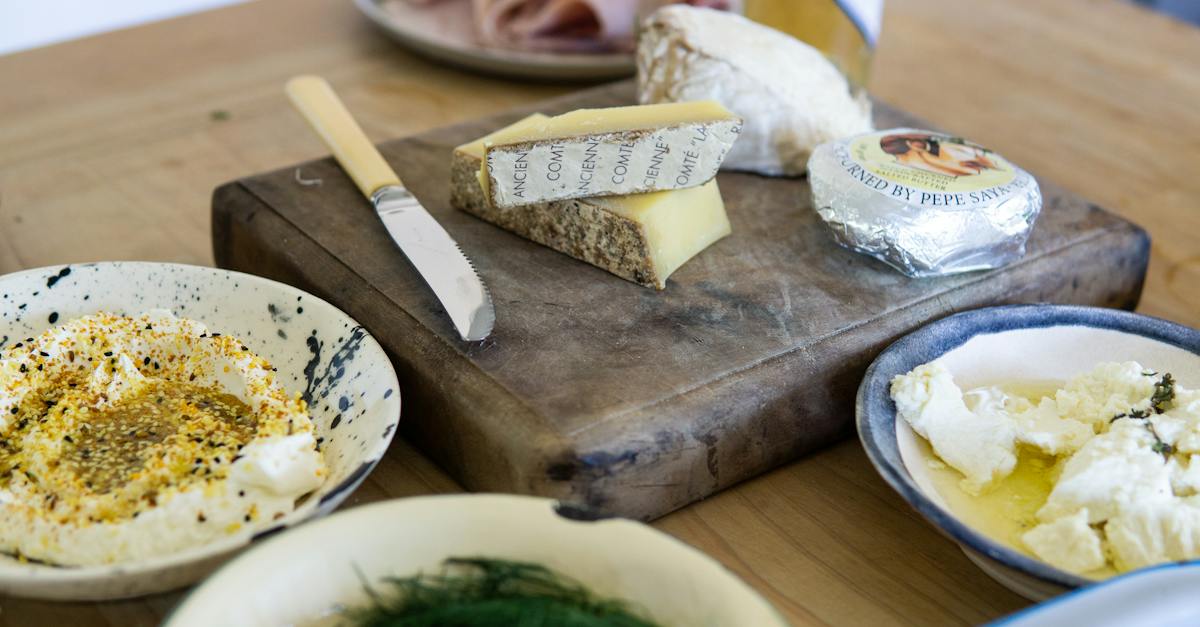
Written by: Alex Chen · Expert in Technology, Personal Finance, Travel
Published: January 27, 2024
We strive to provide well-researched, factual content. If you notice any errors, please contact us.

Butter has been a staple in our diets for centuries. Its creamy texture and rich flavor make it a versatile ingredient that can be used in a wide range of dishes. From spreading it on toast to using it as a key component in baking, butter has become an essential part of our culinary traditions.
Believe it or not, butter dates back to ancient times. The early Egyptians were the first to discover the magic of butter. According to historical records, the pharaohs enjoyed butter as a luxury item, often using it in religious ceremonies. They even had butter sculptures! Can you imagine?
The popularity of butter continued to grow throughout the centuries. During the Middle Ages, butter became a symbol of wealth and prosperity. It was highly valued and often used as a form of currency. In fact, it was not uncommon for farmers to pay their rent with butter!
In the 19th century, a revolution took place in the world of butter. Margarine was introduced as a cheaper alternative to butter, much to the dismay of traditionalists. This led to a heated debate known as the Butter vs. Margarine War. The battle lines were drawn, with proponents of butter arguing for its superior taste and nutritional value, while supporters of margarine touted its affordability and longer shelf life.
Both sides fought fiercely, but in the end, butter emerged victorious. People simply could not resist the allure of its rich, natural taste. Margarine, on the other hand, faced accusations of being an inferior imitation. Its artificial ingredients and processed nature did not sit well with consumers, who preferred the real deal.
Today, butter continues to be a beloved ingredient in kitchens around the world. It is a key component in classic recipes such as croissants, chocolate chip cookies, and creamy mashed potatoes. Chefs and home cooks alike appreciate its ability to enhance the flavor and texture of dishes.
Butter has also made a comeback in recent years, thanks to a renewed interest in traditional culinary practices. Artisanal butter, made from high-quality ingredients and churned in small batches, has gained popularity among food enthusiasts. Its unique flavors and textures add an extra layer of complexity to dishes, elevating them to new heights.
While butter may have undergone some scrutiny in the past due to its high fat content, recent research has shed new light on its health benefits. Contrary to popular belief, butter is not the enemy. In fact, it can be part of a balanced diet.
Butter is a good source of fat-soluble vitamins, such as vitamins A, D, E, and K. These vitamins play a crucial role in various bodily functions, including immune function, bone health, and blood clotting. Butter also contains healthy fatty acids, which are important for brain health and hormone production.
However, like all good things, butter should be enjoyed in moderation. Excessive consumption of butter can contribute to weight gain and increased cholesterol levels. It's important to strike a balance and incorporate butter into a diverse and balanced diet.
The journey of butter throughout history has been nothing short of remarkable. From its humble beginnings in ancient Egypt to its status as a culinary icon, butter has stood the test of time. Its rich history, versatility, and unique flavor continue to captivate our taste buds.
So the next time you spread a generous amount of butter on your toast or take a bite of a flaky croissant, take a moment to appreciate the centuries of tradition and craftsmanship that have gone into making that delicious slab of goodness. Butter truly is a wonder of the culinary world.

Written by: Alex Chen · Expert in Technology, Personal Finance, Travel
Published: January 27, 2024
We strive to provide well-researched, factual content. If you notice any errors, please contact us.